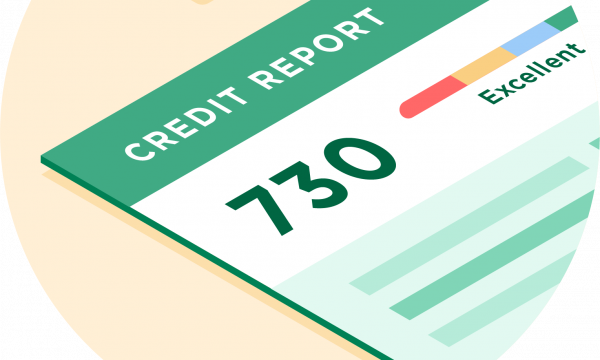How Long Does Bankruptcy Stay on Your Credit Reports?
Chapter 7 bankruptcy stays on your credit reports for 10 years. Chapter 13 bankruptcy stays on your credit reports for seven years.

Many, or all, of the products featured on this page are from our advertising partners who compensate us when you take certain actions on our website or click to take an action on their website. However, this does not influence our evaluations. Our opinions are our own. Here is a list of our partners and here's how we make money.
Bankruptcy can provide relief to people by erasing debt or creating a plan to restructure and repay it. It’s a tough situation because your credit will be affected for years, but you can take steps to rebuild it in time.
How long does bankruptcy stay on your credit reports?
If you file Chapter 7 bankruptcy — the most common type of consumer bankruptcy — it stays on your credit reports for up to 10 years from the filing date. With Chapter 13 bankruptcy, the negative mark will take up to seven years after the filing date to drop off your credit reports.
Did you know...
The two most common types of bankruptcy available to individuals are Chapter 7 and Chapter 13.Chapter 7: Known as “liquidation” bankruptcy, it involves the sale of your nonexempt property, such as housing, with the proceeds going to repay creditors. Chapter 13: This form of bankruptcy allows you to keep property and make a plan to gradually pay debts over three to five years. » MORE: Before you file. What to know about bankruptcy.
How does bankruptcy affect your credit score?
As you might expect, bankruptcy will have a negative impact on your credit. Just how negatively depends on your specific situation. According to credit bureau Experian, though, a bankruptcy filing can cause your credit score to drop by up to 200 points.
That said, you'll probably see your scores quickly start to recover in the months following a successful filing, according to the Federal Reserve Bank of Philadelphia . You can positively influence the process by taking smart steps to improve your credit, such as making payments on time the best you can.
Stress less. Track more.
See the full picture: savings, debt, investments and more. Smarter money moves start in our app.
Can you remove a bankruptcy from your credit report?
You can’t remove a legitimate bankruptcy from your credit reports. But credit bureaus stop showing a bankruptcy seven years after the filing date for Chapter 13 and 10 years after the filing date for Chapter 7.
If you notice that your bankruptcy hasn't been removed from the “public records” area of your credit reports after that time, you should dispute it with the credit bureaus. The credit bureaus are generally required to investigate within 30 days.
Still, the accounts your bankruptcy allowed you to resolve won’t be erased from your report at the time of filing, according to Experian, Equifax and TransUnion, the three major credit bureaus.
You can expect closed accounts with delinquencies to be deleted from your credit history about seven years after the account went delinquent and was never brought current.
Do you need to disclose bankruptcy after it's over?
There are cases when you must disclose a bankruptcy, even after the seven or 10 year period. For instance, a previous bankruptcy may come up in applications for a credit card, new job or security clearance, as well as when securing or renewing a licensing requirement.
It’s important to note that federal law prohibits a previous bankruptcy from being held against you in an employment decision.
How to help your credit recover after a bankruptcy
While both Chapter 7 and Chapter 13 bankruptcies will remain on your credit report for a number of years, you can take steps to restore your credit to mitigate the damage. That means making on-time payments, using your credit sparingly and potentially getting a secured credit card or credit-builder loan.
Stress less. Track more.
See the full picture: savings, debt, investments and more. Smarter money moves start in our app.
Article sources
NerdWallet writers are subject matter authorities who use primary,
trustworthy sources to inform their work, including peer-reviewed
studies, government websites, academic research and interviews with
industry experts. All content is fact-checked for accuracy, timeliness
and relevance. You can learn more about NerdWallet's high
standards for journalism by reading our
editorial guidelines.
- 1. Federal Reserve Bank of Philadelphia. Credit Access After Consumer Bankruptcy. Accessed Feb 2, 2026.
Related articles










